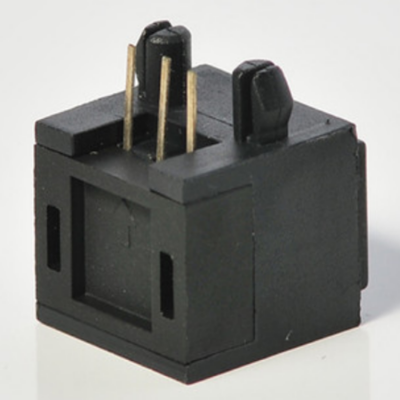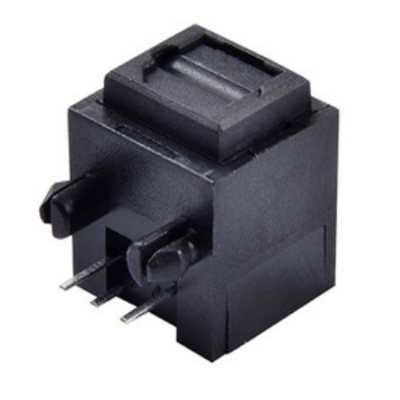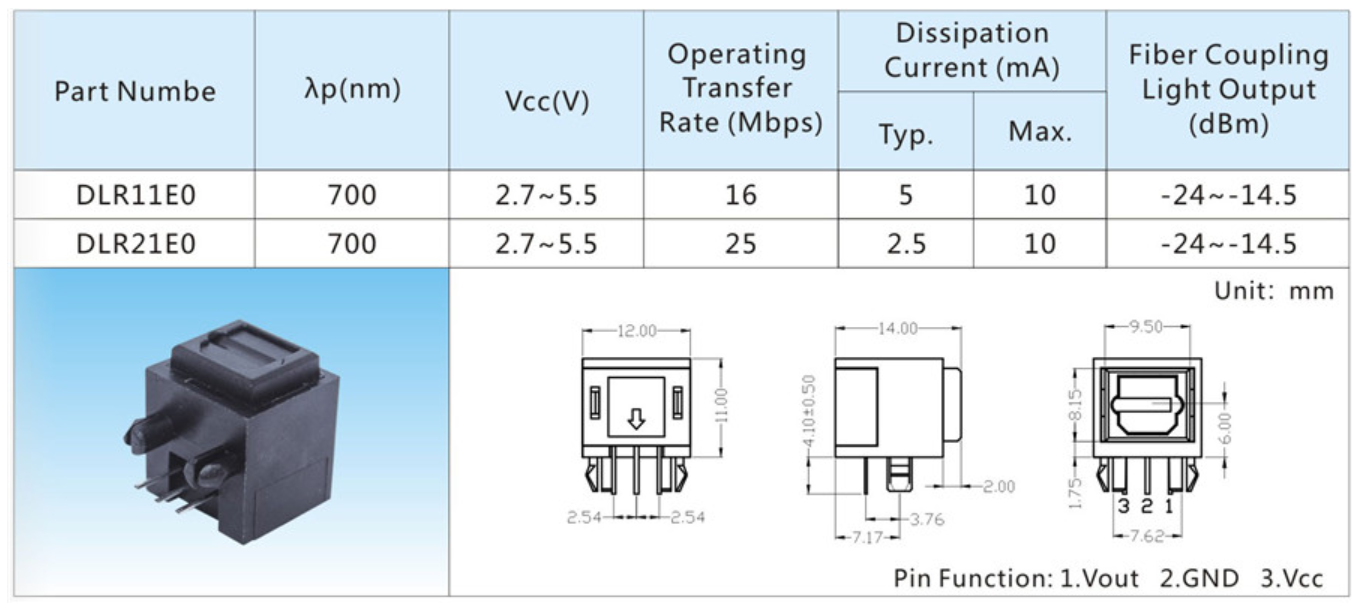



An audio transceiver is an electronic device used to transmit and receive audio signals in both directions, realizing the sending and receiving of audio in real time. Its main function is to convert audio signals into electrical signals (transmitting side) or restore electrical signals into audio (receiving side). It is widely used in the fields of communication, broadcasting, recording, monitoring, etc.
Models:DLT11E0A DLR11E0A
DLT11E0A DLR11E0A are audio fiber terminal, which belongs to the fiber audio interface component and is mainly used to realize the optical transmission of audio signals.

Core functions and application scenarios
1. Optical signal transmission
as a transmitting fiber terminal, supports the conversion of digital audio signals into optical signals for transmission, and is suitable for scenarios sensitive to electromagnetic interference
Typical applications: connecting TVs, set-top boxes, amplifiers, game consoles and other devices to achieve high-fidelity audio transmission
2. Interface and protocol support
Interface type: uses TOSLINK standard interface, compatible with SPDIF protocol, supports stereo or multi-channel digital audio transmission.
3. High-frequency transmission capability
Working frequency: supports 96KHz high-frequency transmission, can meet the needs of 24bit/192kHz lossless audio format, and is suitable for high-definition sound quality scenarios.
Transmission rate: Based on similar products, it may support data transmission rates of 16Mbps and above.
4. Technical features and design details
Marerial and process
Contact material: Copper-clad steel is used to ensure good conductivity and corrosion resistance.
Insulator material: PBT engineering plastic is used, which has high temperature resistance and flame retardant properties and can adapt to complex environments.
Surface treatment: Some models may be gold-plated to improve oxidation resistance and signal transmission stability.
